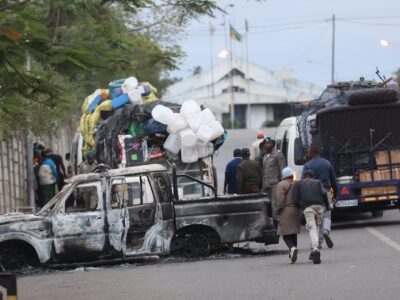
(Ecofin Agency) – The World Bank warns that without new climate adaptation measures, Senegal could experience annual GDP losses of up to 9.4% by 2050 due to climate-related disasters.
Senegal could see a 2% boost in GDP by 2030 through targeted investments in climate adaptation, according to the World Bank’s latest Climate and Development Report for the country.

The report estimates that investments in adaptation across four key sectors—forestry, fisheries and aquaculture, agriculture, and disaster risk management—will require funding of about 0.9% of GDP through 2030, and 0.1% thereafter. These investments are expected to yield a 2% increase in GDP by 2030, with an average annual increase of 0.5% to 1% thereafter.
The agricultural sector, crucial for food security and employment, is identified as the largest beneficiary of adaptation investments, followed by fisheries and forestry. Notably, the energy and agriculture sectors together account for 76% of Senegal’s greenhouse gas emissions, according to the report.

Without further climate adaptation measures, Senegal’s economy could lose up to 9.4% of its GDP annually by 2050 due to climate-related disasters. These impacts could increase poverty levels by 6.8 percentage points, hindering the nation’s poverty reduction efforts, according to the report.

Recent severe flooding along the Senegal River highlights the country’s vulnerability. In Matam, over 44 sites were heavily affected, and in Saint-Louis, 51 villages faced serious flood damage, underlining the urgent need for infrastructure and risk management to protect communities and livelihoods.
To address these challenges, the World Bank estimates Senegal will need $1.36 billion annually for climate action through 2030. This funding would strengthen the country’s resilience and support emissions reduction initiatives, especially in the energy sector.
Senegal’s Nationally Determined Contribution (NDC) goals aim to reduce emissions by 7% by 2030, with a potential cut of 29.5% if supported by international funding. To achieve these targets, the country plans to increase renewable energy use, shift from fuel oil and coal to natural gas and other cleaner sources, and improve energy efficiency across various sectors.
In February 2024, Senegal secured $195 million from the World Bank to enhance climate resilience in the Senegal River Valley. Since June 2023, the International Monetary Fund (IMF) has also provided $324 million under its Resilience and Sustainability Facility to help Senegal build its resilience against climate change.










Comments